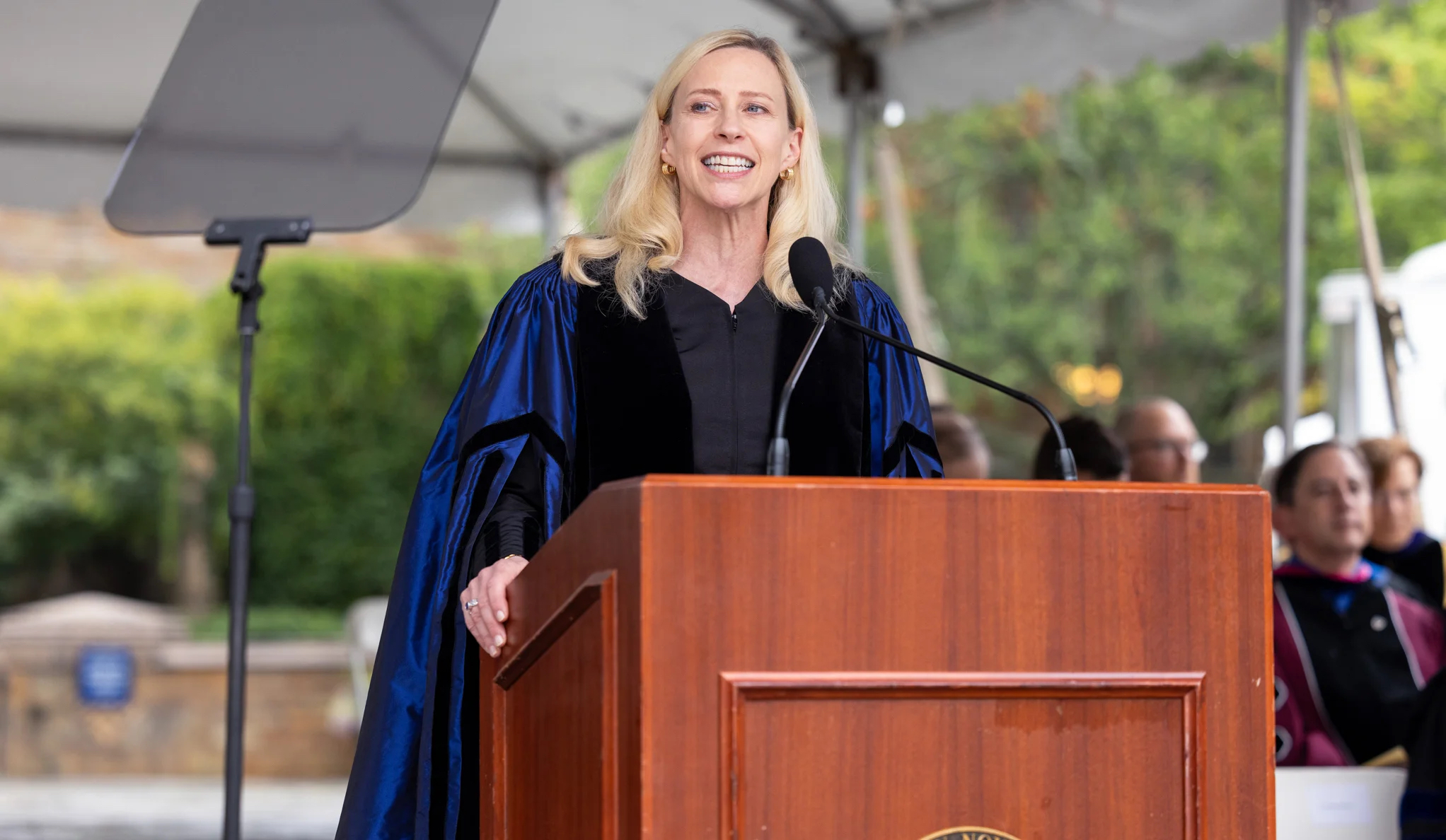First years enter the University under the leadership of Yale’s new 24th president, Maurie McInnis
Maurie McInnis was announced as the University’s new president in late May 2024.

Yale News
The 2024-25 academic year will mark the first under a new University president in over a decade. University President Maurie McInnis assumed the top leadership position on July 1 after former president Peter Salovey stepped back to rejoin the Department of Psychology faculty.
McInnis first came to Yale to pursue master’s and doctoral degrees in the history of art, completing them in 1990 and 1996, respectively. Her academic research examines early American politics and the slave trade through the insights of works of art. Two years ago, she was appointed as a successor trustee of the Yale Corporation, the principal arm of the University that governs policies, the endowment and the selection of presidents.
On May 29, senior trustee Joshua Bekenstein ’80 announced that the corporation had appointed McInnis to the presidency, making her the first woman to hold the position in a non-interim capacity.
“In the end, all 15 trustees were extremely excited, and it was a very, very unanimous vote with extreme levels of excitement about the future,” Bekenstein told the News in May. “Peter Salovey has done a fantastic job for 11 years, putting Yale where we are today, and we believe that Maurie will be a fantastic leader on a go-forward basis.”
In an August interview with the News, McInnis said that while she does not yet have specific changes planned from Salovey’s governance, she is committed to exploring new solutions.
She promised to engage with the Yale community to understand their aspirations and the University’s strengths before formulating concrete plans, as she had only been president for just over a month at the time.
“[Under President Salovey’s leadership,] the University very clearly identified four pillars of the University’s initiatives and those have given us a really strong foundation,” McInnis told the News during the summer. “My role as president will be to shepherd and grow the work we are doing in that space, benefitting millions around the globe.”
Salovey announced his intention to leave the University’s helm on Aug. 31, before the Israel-Hamas war began in October 2023. Over the course of the following academic year, pro-Palestine campus protests placed universities at the center of a nationwide controversy. Ultimately three Ivy League presidents — at Harvard, Columbia and the University of Pennsylvania — resigned, following backlash after their testimonies on campus antisemitism before Congress.
Although Salovey was initially called to testify as well, Rep. Virginia Foxx, the chairwoman of the House Committee on Education and the Workforce, later replaced him with other college presidents who had reached agreements with student protesters. Salovey was instead rescheduled to appear for a transcribed, closed-door interview with congressional staffers that was not released, thereby avoiding public backlash.
The Presidential Search Committee kept its decision-making process and formal requirements for the presidential job under wraps. In April, the News reported that McInnis fit the typical profile of a presidential choice: a prominent scholar who has held administrative positions in higher education and maintains connections to Yale. Her appointment marks the first time in recent decades that the Corporation has selected one of its own members for the presidency.
Prior to becoming the University’s president, McInnis served as president of Stony Brook University, where she emphasized science programs and secured the largest-ever unrestricted donation to an American university. She previously worked as provost of the University of Texas at Austin and taught at the University of Virginia before becoming an administrator.
While under consideration, McInnis faced mounting criticism at Stony Brook for her decision to arrest students participating in pro-Palestine protest encampments. After 29 arrests were made on May 2, the Stony Brook Faculty Senate narrowly defeated a vote to censure McInnis but approved an investigation into a large campus security operation that McInnis created. Some Stony Brook faculty and administrators blamed her for sowing division on campus in her final semester.
At Yale, pro-Palestine students and a faculty member expressed wariness of her record of involving police in protests. At the same time, other students reserved judgment and were eager to see Yale governed by a female president. Students who sat on the Student Advisory Council of the search committee were optimistic about how McInnis may actively engage with students.
The search committee that selected McInnis was composed of eight fellow Corporation members, four faculty members and 12 students.







